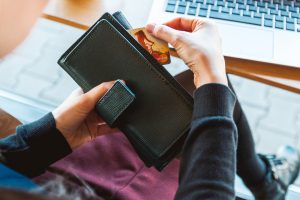COVID-19-related scams: What’s out there and how to avoid them
Authorities are asking people to be aware of scams that are circulating using COVID-19 as a cover for fraudulent activities.
We’ve spoken to government and police officials for more information on what you can do to protect yourself from fraud throughout the COVID-19 outbreak.
In the first of a series of posts, we’ve listed some of the things you should keep a lookout for.
Phishing emails
Phishing emails pose as real and trusted organisations to steal information from others. These work by using attachments in emails that when clicked on, which send you to a page where they ask for personal details such as name, address, email logins, passwords and bank information.
Some organisations that criminals pose as include:
Centre for Disease Control and Prevention (CDC) and the World Health Organisation (WHO). They claim to know all active cases in your local area but in order to get that information, they ask you to:
- click on a link which goes through to a page that asks for your information (which they then steal and use to access bank accounts)
- to make a monetary donation of support into a Bitcoin account.
Additionally, HM Revenue and Customs’ (HMRC) name is being used in emails and texts with offers of tax refunds. Criminals use the logo to make emails look realistic to gain your trust to make you give out your personal and bank details.
Online Shopping
Scammers are also using online shopping to gather your information and money.
Following government advice to only go to the shops for necessities, more and more people are doing their shopping online. Criminals are setting-up online shops which appear genuine where people can buy face masks, hand sanitizer and other products – however, these are not sent and your money is then gone. There are also reports of fake testing kits on sale.
To ensure you’re shopping at a safe, secure and legitimate online store, look or the padlock symbol in your web browser’s address bar.
Criminals are also targeting vulnerable people and sending them emails about fake medical advice and supplies. They are also sending appeals for monetary support to illegitimate charities of coronavirus patients.
Remote workers
An increase in people working from home gives criminals more opportunities for online crime. Criminals will try to convince you to them give access to your computer or provide your login details which they can then use to commit crimes against you.
There are also reports of cold callers asking you to download software to grant remote access to your computer, which gives them access to all of your sensitive information.
Never give out any login or financial information over the phone (such as your pin or online banking details). Before giving over any information to cold callers, research the organisation to ensure it is trustworthy.

Lender Loans
Criminals are taking advantage of the economic downturn by launching quick loan deals to entice people to sign-up for fraudulent, money-lending scams. Criminals will then use this information to steal personal and banking information.
Use the Financial Conduct Authority Register to check if the company is registered with the FCA. If this isn’t the case, you do not have any legal protection if your money is lost.
If a loan offer looks too good to be true, it often is!
If any of these things have happened to you, or if you’ve seen something that you think maybe a scam, please contact Action Fraud.

